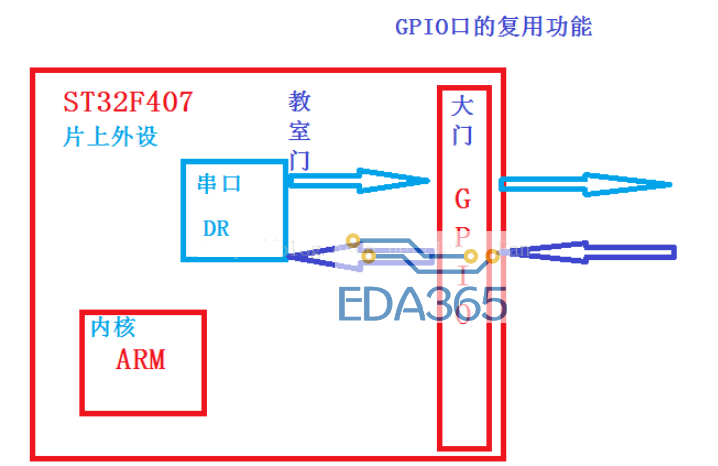先看一下ucos的程序结构
进过整理,工程这样组成:
我们主要是对ucos移植中的三个文件进行修改。
1.OS_CPU.H
更改的地方,我用汉语标注
/*
*********************************************************************************************************
* uC/OS-II
* The Real-Time Kernel
*
* (c) Copyright 1992-2002, Jean J. Labrosse, Weston, FL
* All Rights Reserved
*
* AVR ATmega32 Specific code
* small memory model
*
* IAR Embedded Workbench 5.0
*
* File : OS_CPU.H
* By : CH314156
*********************************************************************************************************
*/
#ifdef OS_CPU_GLOBALS
#define OS_CPU_EXT
#else
#define OS_CPU_EXT extern
#endif
/*
*********************************************************************************************************
* DATA TYPES
* (Compiler Specific)
*********************************************************************************************************
*/
typedef unsigned char BOOLEAN;
typedef unsigned char INT8U; /* Unsigned 8 bit quantity */
typedef signed char INT8S; /* Signed 8 bit quantity */
typedef unsigned int INT16U; /* Unsigned 16 bit quantity */
typedef signed int INT16S; /* Signed 16 bit quantity */
typedef unsigned long INT32U; /* Unsigned 32 bit quantity */
typedef signed long INT32S; /* Signed 32 bit quantity */
typedef float FP32; /* Single precision floating point */
typedef double FP64; /* Double precision floating point */
typedef unsigned char OS_STK; /* 每个堆栈宽度是8位 */
typedef unsigned char OS_CPU_SR; /* 定义CPU状态寄存器的大小(RSEG = 8 bits) */
/*
*********************************************************************************************************
* AVR ATmega32 small memory model
*
* Method #1: Disable/Enable interrupts using simple instructions. After critical section, interrupts
* will be enabled even if they were disabled before entering the critical section.
*
* Method #2: Disable/Enable interrupts by preserving the state of interrupts. In other words, if
* interrupts were disabled before entering the critical section, they will be disabled when
* leaving the critical section.
*
* Method #3: Disable/Enable interrupts by preserving the state of interrupts. Generally speaking you
* would store the state of the interrupt disable flag in the local variable 'cpu_sr' and then
* disable interrupts. 'cpu_sr' is allocated in all of uC/OS-II's functions that need to
* disable interrupts. You would restore the interrupt disable state by copying back 'cpu_sr'
* into the CPU's status register.
*********************************************************************************************************
*/
#define OS_CRITICAL_METHOD 3 /* 这里使用方法3,功能最完善 */
#if OS_CRITICAL_METHOD == 1
#define OS_ENTER_CRITICAL() asm("cli") /* Disable interrupts */
#define OS_EXIT_CRITICAL() asm("sei") /* Enable interrupts */
#endif
#if OS_CRITICAL_METHOD == 2
#define OS_ENTER_CRITICAL() asm("PUSH_SREG");asm("cli") /* Disable interrupts */
#define OS_EXIT_CRITICAL() asm("POP_SREG") /* Enable interrupts */
#endif
#if OS_CRITICAL_METHOD == 3
#define OS_ENTER_CRITICAL() cpu_sr = SREG; asm("cli") /* 关中断 */
#define OS_EXIT_CRITICAL() SREG = cpu_sr /* 开中断 */
#endif
/*
*********************************************************************************************************
* AVR ATmega32 small memory model
*********************************************************************************************************
*/
#define OS_STK_GROWTH 1 /* Stack grows from HIGH to LOW memory on ATmega32*/
#define OS_TASK_SW() OSCtxSw() /* 这里不需要产生中断,直接调用即可 */
2.对OS_CPU_C.C的修改,主要是对其中STaskStkInit函数的修改:
/*
*********************************************************************************************************
* INITIALIZE A TASK'S STACK
*
* Description: This function is called by either OSTaskCreate() or OSTaskCreateExt() to initialize the
* stack frame of the task being created. This function is highly processor specific.
*
* Arguments : task is a pointer to the task code
*
* pdata is a pointer to a user supplied data area that will be passed to the task
* when the task first executes.
*
* ptos is a pointer to the top of stack. It is assumed that 'ptos' points to
* a 'free' entry on the task stack. If OS_STK_GROWTH is set to 1 then
* 'ptos' will contain the HIGHEST valid address of the stack. Similarly, if
* OS_STK_GROWTH is set to 0, the 'ptos' will contains the LOWEST valid address
* of the stack.
*
* opt specifies options that can be used to alter the behavior of OSTaskStkInit().
* (see uCOS_II.H for OS_TASK_OPT_???).
*
* Returns : Always returns the location of the new top-of-stack' once the processor registers have
* been placed on the stack in the proper order.
*
* Note(s) : Interrupts are enabled when your task starts executing. You can change this by setting the
* PSW to 0x0002 instead. In this case, interrupts would be disabled upon task startup. The
* application code would be responsible for enabling interrupts at the beginning of the task
* code. You will need to modify OSTaskIdle() and OSTaskStat() so that they enable
* interrupts. Failure to do this will make your system crash!
*********************************************************************************************************
*/
OS_STK *OSTaskStkInit (void (*task)(void *pd), void *pdata, OS_STK *ptos, INT16U opt)
{
INT8U *stk = ptos; //软件指针
INT8U *stk_hard = stk - SOFT_SIZE; //调整硬件指针位置
*stk_hard-- = (INT16U)task&0xff; //在硬件指针存放该任务的首地址
*stk_hard-- = (INT16U)task>>8;
opt = opt;
//一下是软件堆栈,存放R0~R25,X,Z,SP,SREG
*stk-- = 0x00; //R0
*stk-- = 0x01; //R1
*stk-- = 0x02; //R2
*stk-- = 0x03; //R3
*stk-- = 0x04; //R4
*stk-- = 0x05; //R5
*stk-- = 0x06; //R6
*stk-- = 0x07; //R7
*stk-- = 0x08; //R8
*stk-- = 0x09; //R9
*stk-- = 0x10; //R10
*stk-- = 0x11; //R11
*stk-- = 0x12; //R12
*stk-- = 0x13; //R13
*stk-- = 0x14; //R14
*stk-- = 0x15; //R15
*stk-- = (INT16U)pdata & 0xff ; //R16
*stk-- = (INT16U)pdata >>8 ; //R17
*stk-- = 0x18; //R18
*stk-- = 0x19; //R19
*stk-- = 0x20; //R20
*stk-- = 0x21; //R21
*stk-- = 0x22; //R22
*stk-- = 0x23; //R23
*stk-- = 0x24; //R24
*stk-- = 0x25; //R25
*stk-- = 0x26; //R26
*stk-- = 0x27; //R27
*stk-- = 0x30; //R30
*stk-- = 0x31; //R31
*stk-- = (INT16U)stk_hard & 0xff; //SPL
*stk-- = (INT16U)stk_hard >> 8; //SPH
*stk = 0x00; //SREG,禁止中断
return ((OS_STK *)stk);
}
『本文转载自网络,版权归原作者所有,如有侵权请联系删除』
 热门文章
更多
热门文章
更多









